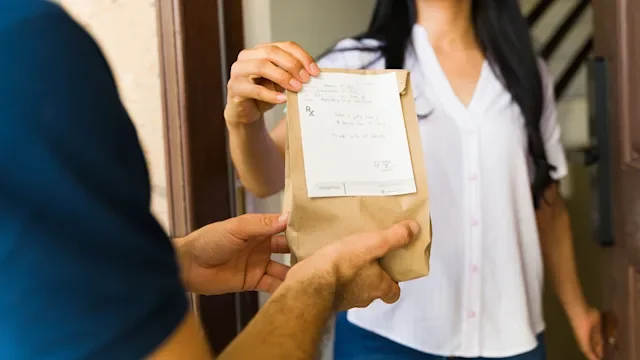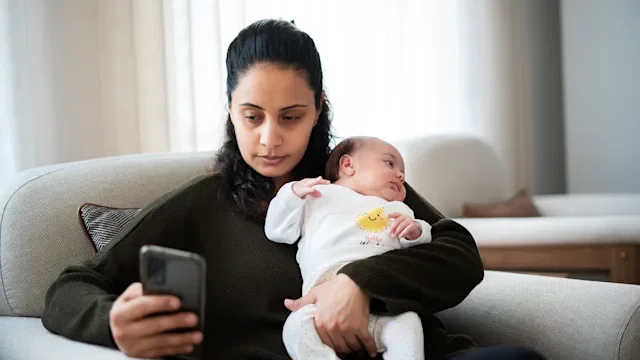Key takeaways:
Charitable pharmacies are usually nonprofit organizations. They exist with the purpose of helping improve the lives of people in need.
Medications dispensed through a charitable pharmacy are usually in-kind donations or are purchased with donated funds. Most are generic medications. Dispensary of Hope, a nonprofit medication distributor, also offers an insulin program through its partner pharmacies.
Eligibility differs between charitable pharmacies. But it’s often determined through a combination of income and insurance status. You can find a charitable pharmacy near you online or by phone.
It’s estimated that around 10% of people in the U.S. don’t have health insurance. Many more are underinsured and are forced to stretch their finances or choose between medications and other basic necessities, such as food or rent. And with rising prescription costs, nearly 40% of people say they struggle to afford their medications.
Charitable pharmacies, which are often nonprofit organizations and provide free medications to low-income and uninsured people, are tackling this problem by helping those who need it most. In fact, according to the National Association of Free and Charitable Clinics, there are more than 5.8 million visits to charitable pharmacies and clinics every year.
Below, we’ll answer common questions about charitable pharmacies — what they are, the services they provide, and how to find one in your area.
How is a charitable pharmacy different from other types of pharmacies?
Most community pharmacies operate as for-profit companies. That means they purchase medications and sell them to you and your insurance company. They may also offer other pharmacy services, like Medication Therapy Management (MTM) or vaccines. They must charge a fair price for those services in order to fully cover their costs of doing business.
Charitable pharmacies, on the other hand, operate differently. According to the Charitable Pharmacies of America, these organizations have the express purpose of improving health outcomes among the vulnerable. This is done by working to reduce health disparities and increasing medication access.
As Hillary Blackburn, PharmD, MBA, the Chief Pharmacy Officer for Dispensary of Hope, notes, charitable pharmacies are typically run as nonprofit organizations. Most work closely with safety-net clinics and Federally Qualified Health Centers in the area to increase awareness of their services among people who may be eligible.
What medications are offered at charitable pharmacies?
The types of medications offered at charitable pharmacies differ depending on the pharmacy. But, generally speaking, charitable pharmacies rely on gift-in-kind donations of medications from manufacturers. They also commonly purchase medications from drug distributors using donated funds. There are also organizations such as Supporting Initiatives to Redistribute Unused Medicine (SIRUM), which help supply charitable pharmacies with medications.
Most donated medications are generics. They can include tablets and capsules, creams, and liquids. But there are some exceptions. For example, the Dispensary of Hope has an insulin program to offer insulin at no cost to those who are eligible. Also, controlled medications are not typically offered through charitable pharmacies.
Charitable pharmacies don’t usually stock many branded medications. However, patient assistance programs are widely available for branded medications. If you’re eligible, you can receive these medications at no cost from the manufacturer.
In addition to medications, charitable pharmacies offer a place for people to receive much-needed education, MTM, and support that improves the continuity of care.
Are the donated medications safe to take?
Donated medications are the same as medications you would get from any other pharmacy. All donated medications are still in date. So, you don’t have to worry about receiving expired medications.
As Dr. Blackburn remarks, “Medications may come from a variety of sources, including medication distributors such as Dispensary of Hope, which is licensed as a wholesale distributor in all 50 states. Charitable pharmacies follow Board of Pharmacy regulations, and all medications are safe to take and within date.”
Carol Risaliti, Executive Director of Beacon Charitable Pharmacy in Ohio, seconds this notion. “We receive medications from numerous reputable sources, including Dispensary of Hope but also Americares, Direct Relief, and the Ohio Drug Repository,” she says.
However, it’s important to check the beyond-use date on your bottle each time you receive a prescription. That’s because the beyond-use date for donated medications may sometimes be closer than for medications purchased from a drug distributor.
For example, a charitable pharmacy may receive a bottle of your prescribed medication that expires in 6 months. A similar bottle purchased from a drug distributor may not expire for 12 months or more. Both are equally safe to take. But if it’s a medication that you only take as needed, be sure not to overlook this date.
Who are charitable pharmacies designed to help?
The eligibility criteria for getting medications from a charitable pharmacy differ depending on the organization. But there are usually two main types of possible criteria: insurance and income. Some charity pharmacies may require documentation to verify eligibility.
Some charitable pharmacies (but not all) have insurance requirements. For example, they may require you to be uninsured to be eligible. Or, you may be required to meet a certain definition of being underinsured.
Eligibility based on income is usually set at a percentage of the Federal Poverty Level. The Federal Poverty Level is determined by your income and the number of people in your household. Many charitable pharmacies will provide medications to people who have a household income up to 300% or 400% of the Federal Poverty Level.
How much do the medications cost?
Dr. Blackburn notes that there are multiple different pricing models out there, depending on the charitable pharmacy and its partner organization.
Many charitable pharmacies provide medications at no cost to people who are eligible. Others require you to pay a small amount out-of-pocket. But this amount is almost always lower than it would be through a for-profit pharmacy.
Beacon Charitable Pharmacy is one organization that has a different model. They provide the medication at no cost but request a donation to help cover their operating expenses. No one is turned down if they cannot afford to donate, but the donations are critical to the organization’s ability to continue providing care.
Carol Risalti says that “up to 80% of people pay something, even if they pay in dimes and quarters, because they know how much it helps the pharmacy meet their mission.”
How can you find a charitable pharmacy near you?
You can use a pharmacy locator to find a charitable pharmacy. You can also use one of several charitable mail-order pharmacies.
Pharmacy locator
A good place to start is to use the access site finder on the Dispensary of Hope website to find a partner clinic or pharmacy near you. The pharmacy locator on the Charitable Pharmacies of America website is another good place to look.
NeedyMeds is a popular site that can help you find assistance with paying for your prescriptions. You can also search for your prescription on GoodRx to find ways to save money. FindHelp can connect you with a wide range of services, from food banks to job placement. You may be able to find a charitable pharmacy in your area that way.
Lastly, the United Way offers a free service to help people find essential health services in their area. You can reach them by dialing 211. They are open 24 hours a day, seven days a week. You can also contact them online.
Mail-order pharmacy
Good Pill is a nonprofit mail-order pharmacy that offers medications at a low cost to anyone, regardless of insurance or income. Currently, you must have an address in either Georgia or Illinois in order to use the pharmacy. But they are planning on expanding to more states, so check their website regularly to see if they are available in your state.
RxOutreach is another nonprofit pharmacy that ships medications nationwide. They have hundreds of medications available at a cost much lower than most community pharmacies. You can find your medication and cost on their website.
The bottom line
Charitable pharmacies serve an unmet need by helping the most vulnerable people in the U.S. get their prescribed medications. Most operate as nonprofit organizations, using a mixture of donated medications and donated funds to reach as many people as possible.
You can use one of several pharmacy locators online to find a charitable pharmacy near you. Eligibility differs between pharmacies, so it’s best to check with the pharmacy before your healthcare provider sends the prescription.

Why trust our experts?



References
American Pharmacists Association Foundation. (n.d.). Medication therapy management (MTM).
Charitable Pharmacies of America. (n.d.). What is a charitable pharmacy?
Dispensary of Hope. (2020). Expanding access to life-saving insulin for diabetics that are uninsured and low income!
HealthCare.gov. (n.d.). Federally qualified health center (FQHC).
Office of the Assistant Secretary for Planning and Evaluation. (2023). U.S. federal poverty guidelines used to determine financial eligibility for certain programs.
Tolbert, J., et al. (2022). Key facts about the uninsured population. Kaiser Family Foundation.














